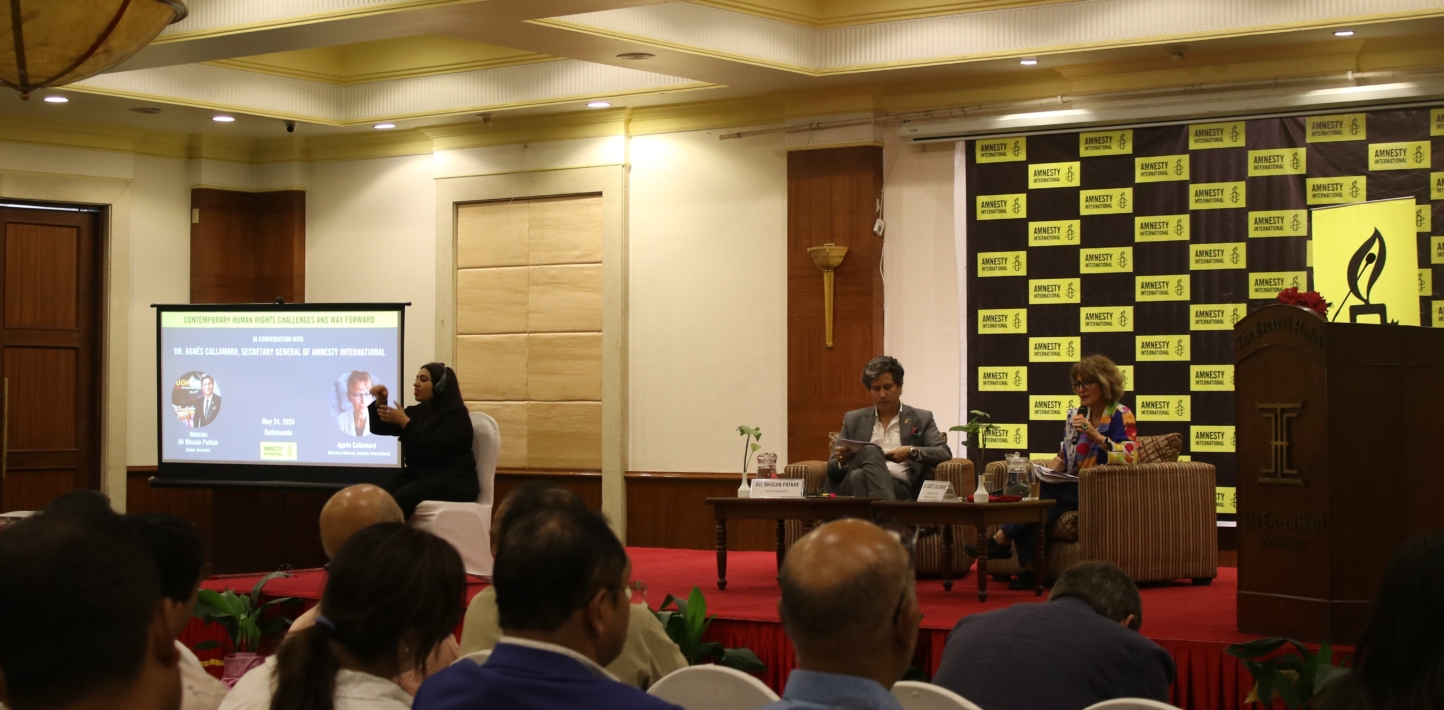Amnesty International’s Secretary General, Agnès Callamard, concluded a four-day visit to Nepal on May 24. She was in Nepal as a part of her first official regional visit to South Asia. Before her mission in Nepal, which has the only Section of Amnesty International in South Asia, she had visited Sri Lanka where Amnesty International’s South Asia office is located.
During her visit, from 21-24 May, she met with government officials, including the Prime Minister Pushpa Kamal Dahal “Prachanda”, leader of the Opposition Party and former Prime Minister Sher Bahadur Deuba and former Prime Minister Khadga Prasad Sharma Oli, and a diverse cross-section of civil society, including rights-holders’ groups, members of the Dalit community, and other stakeholders to discuss a range of pressing human rights issues in Nepal. Her meetings particularly dwelt on the lack of progress on the transitional justice process in Nepal; the government’s increasing restrictions on people’s right to exercise different civil and political rights, such as the right to protest and expression; systemic caste-based discrimination, among others.
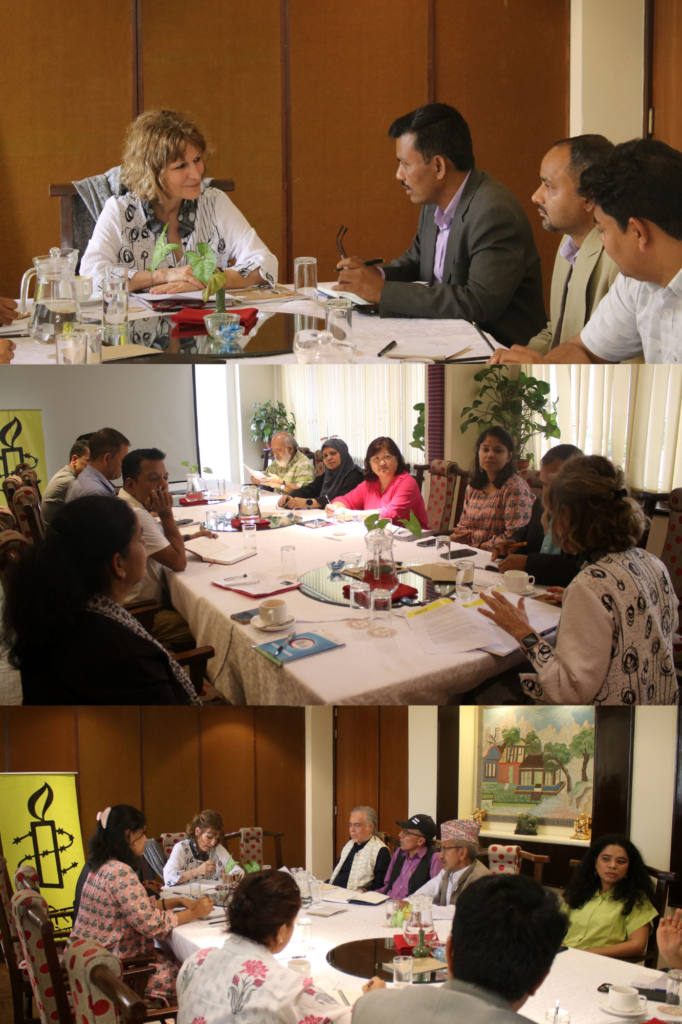
The visit came at the heels of the launch of Amnesty International’s new report on descent-based discrimination against Dalits in Nepal titled “No One Cares”: Descent-Based Discrimination against Dalits in Nepal”.
On the final day of her visit, on May 24, a public interaction program was organised, where human rights defenders, journalists, members of civil society organisations, and members of the international community and Amnesty International Nepal showed enthusiastic participation.
Welcoming participants at the Town Hall event, titled ‘Contemporary Human Rights Challenges and Way Forward: In Conversation with Amnesty’s Secretary General Agnès Callamard’, Amnesty International Nepal Director Nirajan Thapaliya said, “This is a historic moment and a privilege for us to have the leader of Amnesty International, Agnès Callamard, here with us today to shed light on the ongoing human rights situation in the world and Nepal today, the global threats that exist to human rights and international law, and a range of other human rights issues.”
“I would also like to acknowledge that Nutan Thapaliya, the founder of Amnesty International Nepal, even at the age of 97 years is with us, among us today to inspire and motivate us all in the defence of human rights that we do every day,” he added.
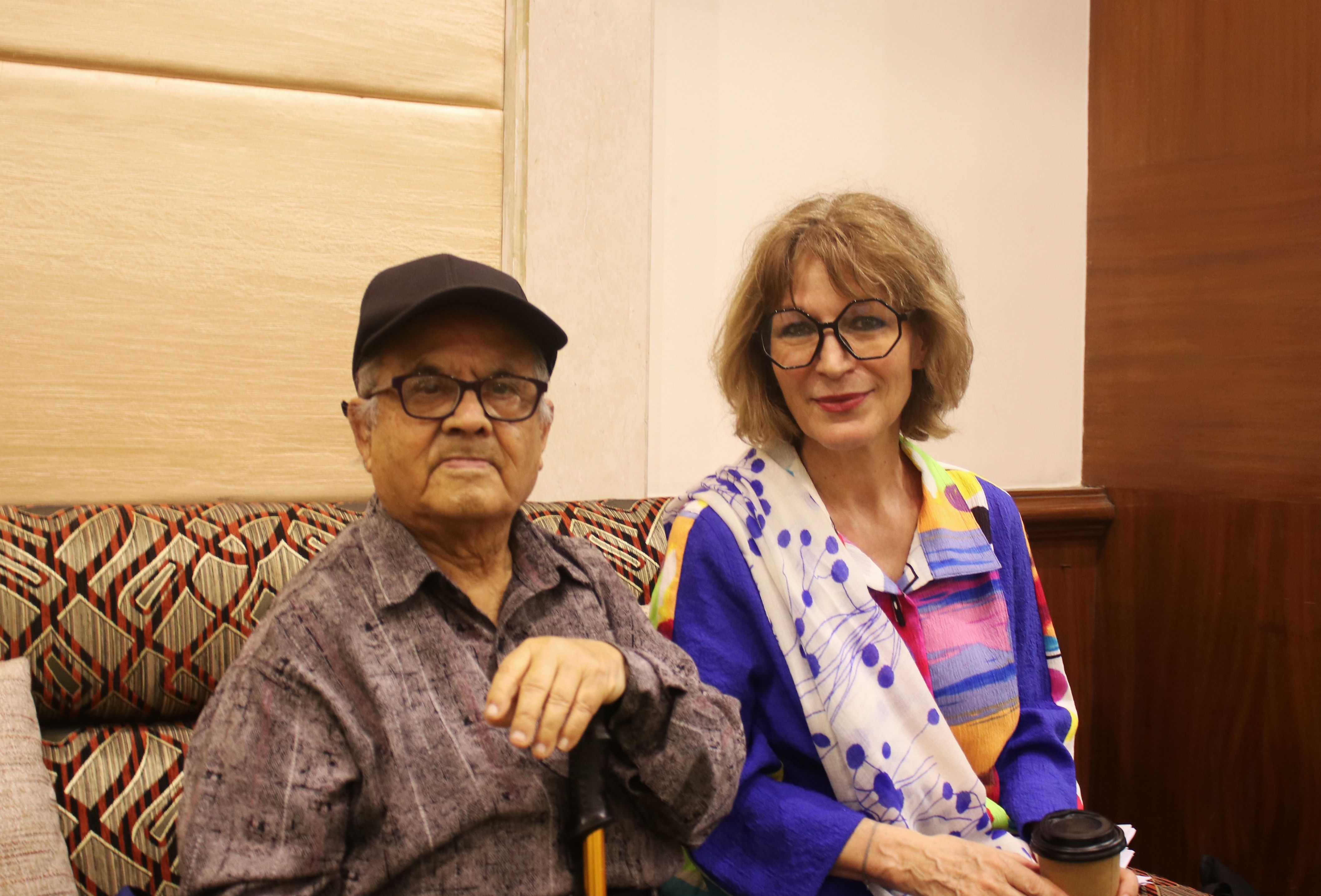
The Town Hall event was moderated by senior journalist Dil Bhusan Pathak.
Addressing Dil Bhusan Pathak’s question on the long-delayed issue of transitional justice, Agnès said: “One of my primary focuses on my visit to Nepal is transitional justice. The Comprehensive Peace Accord was definitely a landmark agreement. It was an attempt to move and build a peaceful society and had some tremendously good ideas, including the creation of commissions and a commitment to deliver justice to some victims in 60 days. But between the ambition of 60 days and the 18 years [that have passed], there is a huge gap, and this is really an indictment of the leadership of Nepal.”
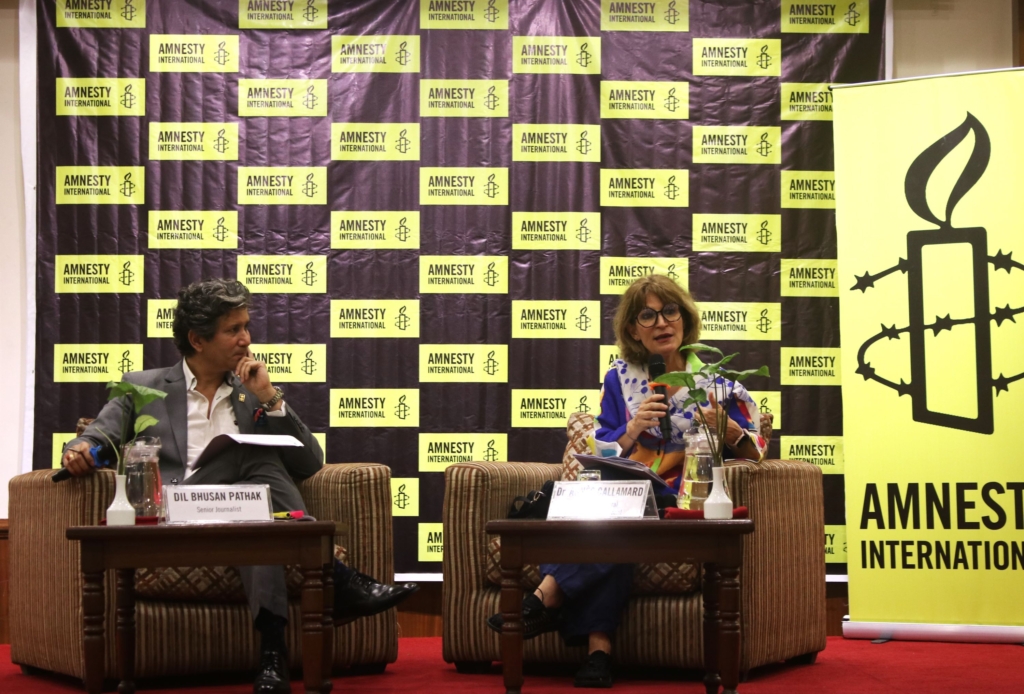
On the proposed bill of amendment to the Enforced Disappearances Inquiry, Truth and Reconciliation Commission Act, 2014, which has remained stuck in the Parliament for over a year over some controversial provisions, Agnès Callamard reiterated Amnesty’s rejection of blanket amnesty, saying: “Amnesty International rejects many dimensions of the 2014 Act, and the proposal to its amendment. We do not believe there should be a blanket amnesty for serious violations. The government needs to recognise that killings and sexual violence are extremely serious crimes and must be treated accordingly. We do not believe there should be any hierarchy in the way violations are treated.”
Speaking on the state of current global human rights situation, Agnes said, “I have been working in the field of human rights for over 30 years and I don’t think I have witnessed such a dire situation globally, which has led us, at Amnesty, to suggest that we are heading towards an abyss from which it is going to be difficult to recover.”
“There is much backsliding in human rights in the South Asian region, and across the world, and there are many commonalities, such as restrictions on freedom of expression and the right to protest, the inability of the government to effectively respond to climate change, a global economy that is producing and increasing inequalities within states and between states,” she said.
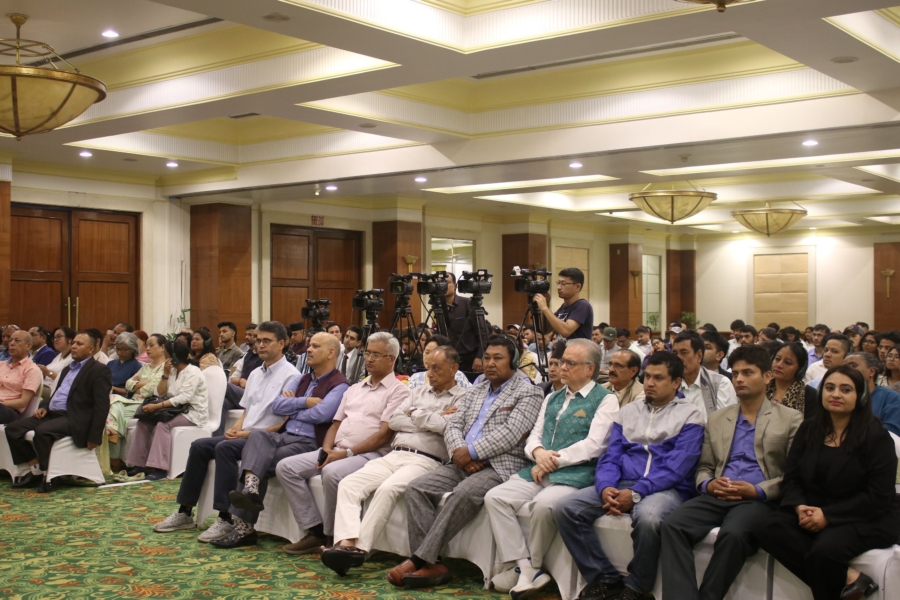
On the state of international law, she said, “We are witnessing a real breakdown of international law and of the rule-based order. It is a breakdown that has been in the making for many years but over the last 2-3 years it has accelerated. And the primary victims are the most marginalised, poor people around the world. This breakdown comes from the fact that powerful countries not only violate the rule of law, such as the rule of war, but are now justifying them. This is sending a very clear message: that international law does not apply to them, that it is meaningless.”
After the session between Dil Bhusan Pathak and Agnès Callamard, the floor was open to participants. In addition to the issue of truth, justice and reparations for the human rights violations committed during the 1996-2006 armed conflict, participants raised questions regarding Amnesty’s work for the rights of the LQBTQI community in Nepal, the rights of people with disabilities, climate justice, among others.
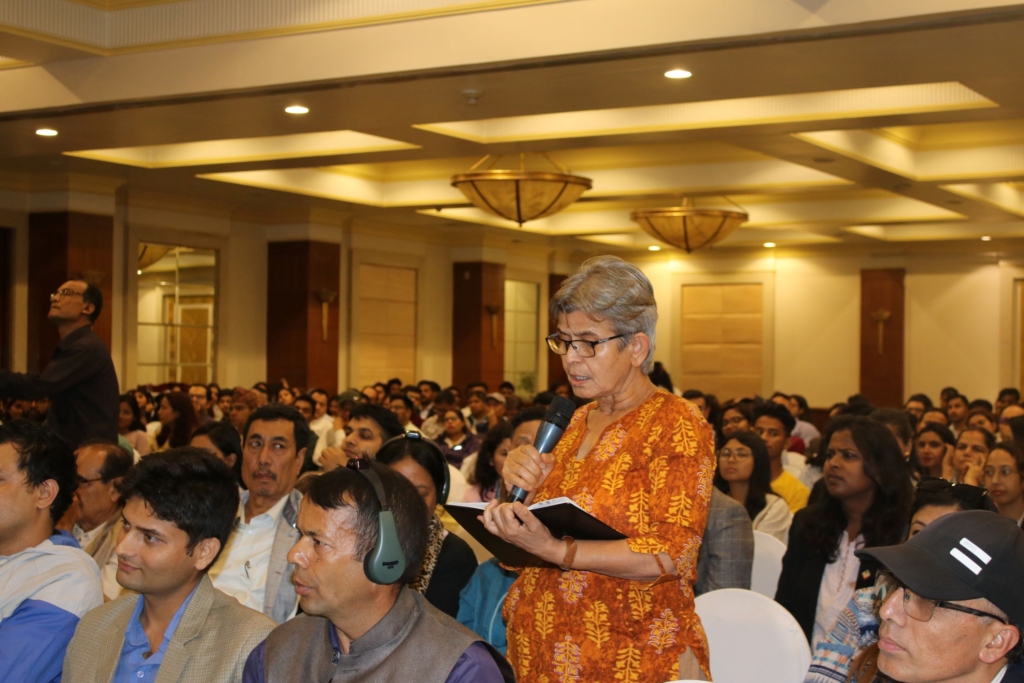
Wrapping up the program, Amnesty International Nepal’s Chairperson Bipin Budhathoki said, “The Secretary General’s visit holds grave importance for the Amnesty movement in Nepal, as it comes just days after the launch of an important report on descent-based discrimination and at a time when governments around the world are disregarding international human rights laws and conventions. As attacks on the freedom of expression and civic space around the world become graver and the world moves towards becoming increasingly authoritarian, it has today become more important than ever to be more united in our voice to continue to fight for human rights for all.”


